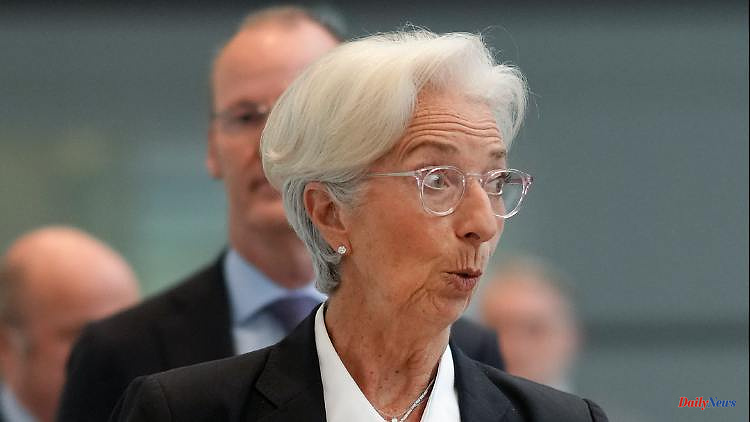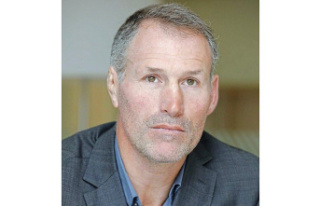After eleven years of low interest rates, the ECB is turning around and starting a moderate interest rate hike in July. However, President Lagarde is not promising a quick dampener for record inflation. On the contrary: the forecasts are bleak and spoil the mood of investors.
In view of rising energy prices, the European Central Bank (ECB) has sharply raised its inflation forecast for the euro zone. Your economists are now expecting an average rate of inflation in the currency union of 6.8 percent for the current year, as the ECB announced in the afternoon. In March they had estimated 5.1 percent. In 2023, the inflation rate is expected to be 3.5 (previously 2.1) percent and then drop to 2.1 (previously: 1.9) percent in 2024.
In a first reaction, investors threw stocks and bonds out of their portfolios. The euro went up and down. "The adjustment of inflation expectations caught the stock markets on the wrong foot," said portfolio manager Thomas Altmann from asset manager QC Partners. The ECB economists are now expecting an average rate of inflation in the currency union of 6.8 percent for the current year instead of 5.1 percent previously. In 2023, the inflation rate is expected to be 3.5 (previously 2.1) percent. "Very few expected such a significant upward adjustment," said Altmann. It makes both larger rate hikes and a longer cycle of increases much more likely.
ECB President Christine Lagarde previously announced a rate hike for July and another - possibly larger - step in September. In the medium term, the ECB is aiming for two percent inflation as the ideal value for the economy. From their point of view, this level offers the most advantages for the euro area. Most recently, however, the rate of inflation had continued to overshoot the target mark due to rapidly rising energy prices. In May it marked a record high of 8.1 percent.
The President of the ECB dampened hopes of a rapid drop in inflation in the euro area as a result of the turnaround in interest rates announced for July. "Do we expect the rate hike in July to have an immediate impact on inflation? The answer is no," Lagarde said in Amsterdam. "It's not a step, it's a journey," she added.
According to them, the interest rate turnaround was met with great unanimity by the ECB management. "The decision was unanimously approved," said Lagarde. "We had a very productive discussion." At the same time, it signaled that the next rate hike in September could be larger than the increase of 0.25 percentage points planned for July. The prerequisite for this is that the in-house forecasts see the inflation rate in 2024 at 2.1 percent or higher. The ECB is aiming for an inflation rate of 2% in the medium term, which it could miss for the fourth year in a row in 2024. The inflation rate is currently at a record level of 8.1 percent.
The ECB economists predict economic growth of only 2.8 percent for the monetary union for the current year. In March they had forecast an increase of 3.7 percent. For 2023, they are now expecting an increase in gross domestic product (GDP) of 2.1 (previously: 2.8) percent. For 2024, 2.1 (previously: 1.6) percent are also expected.












